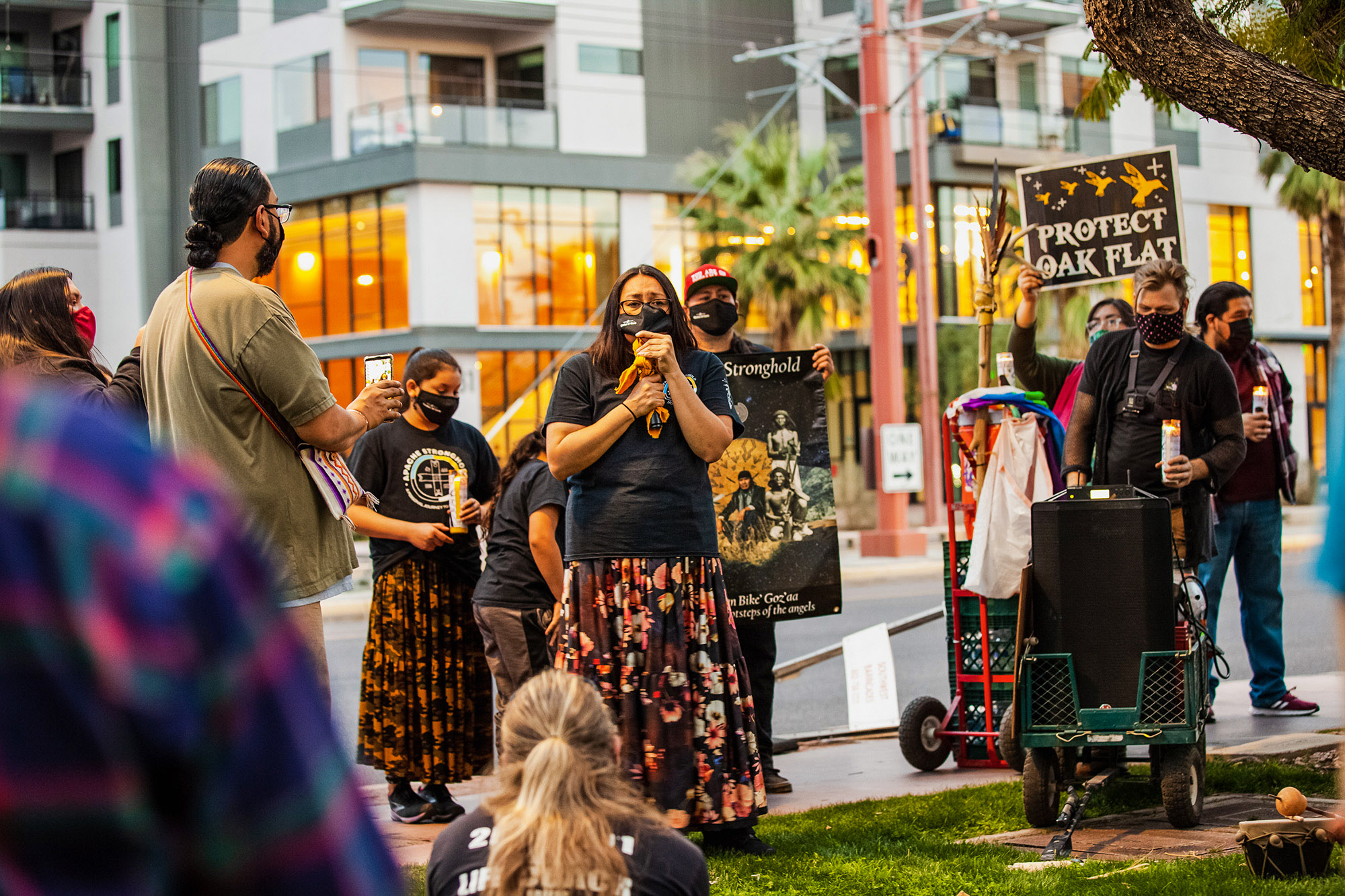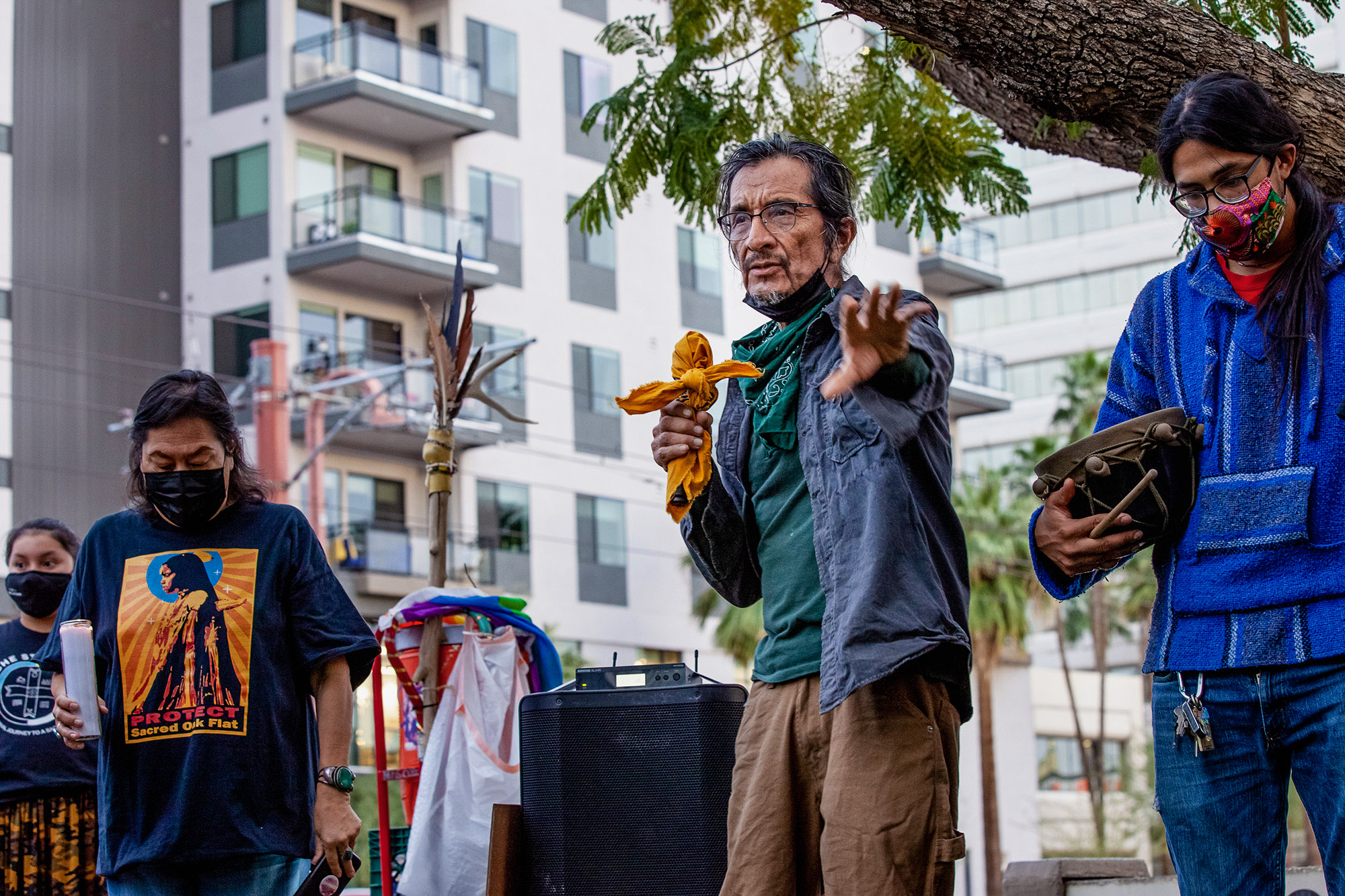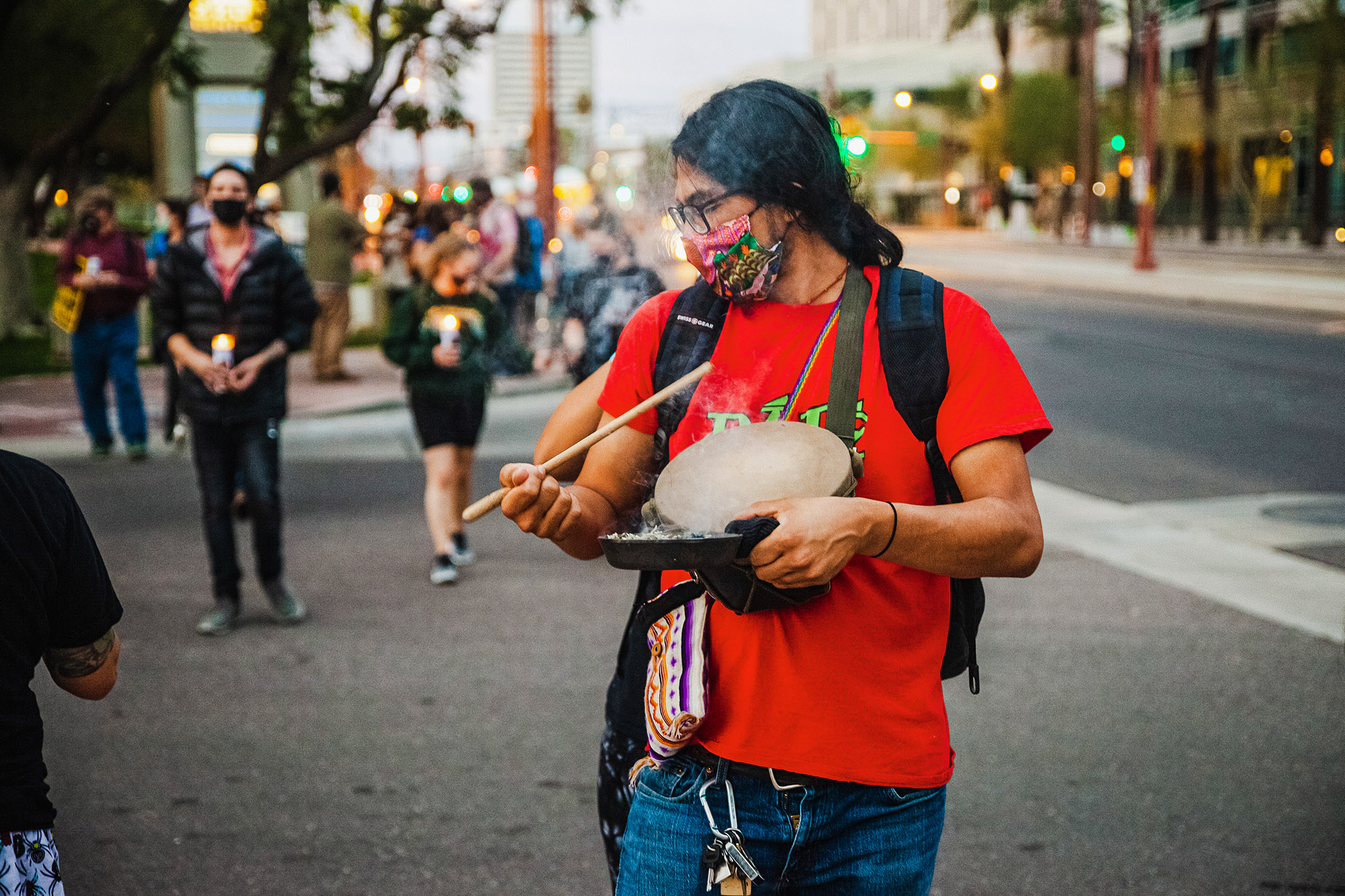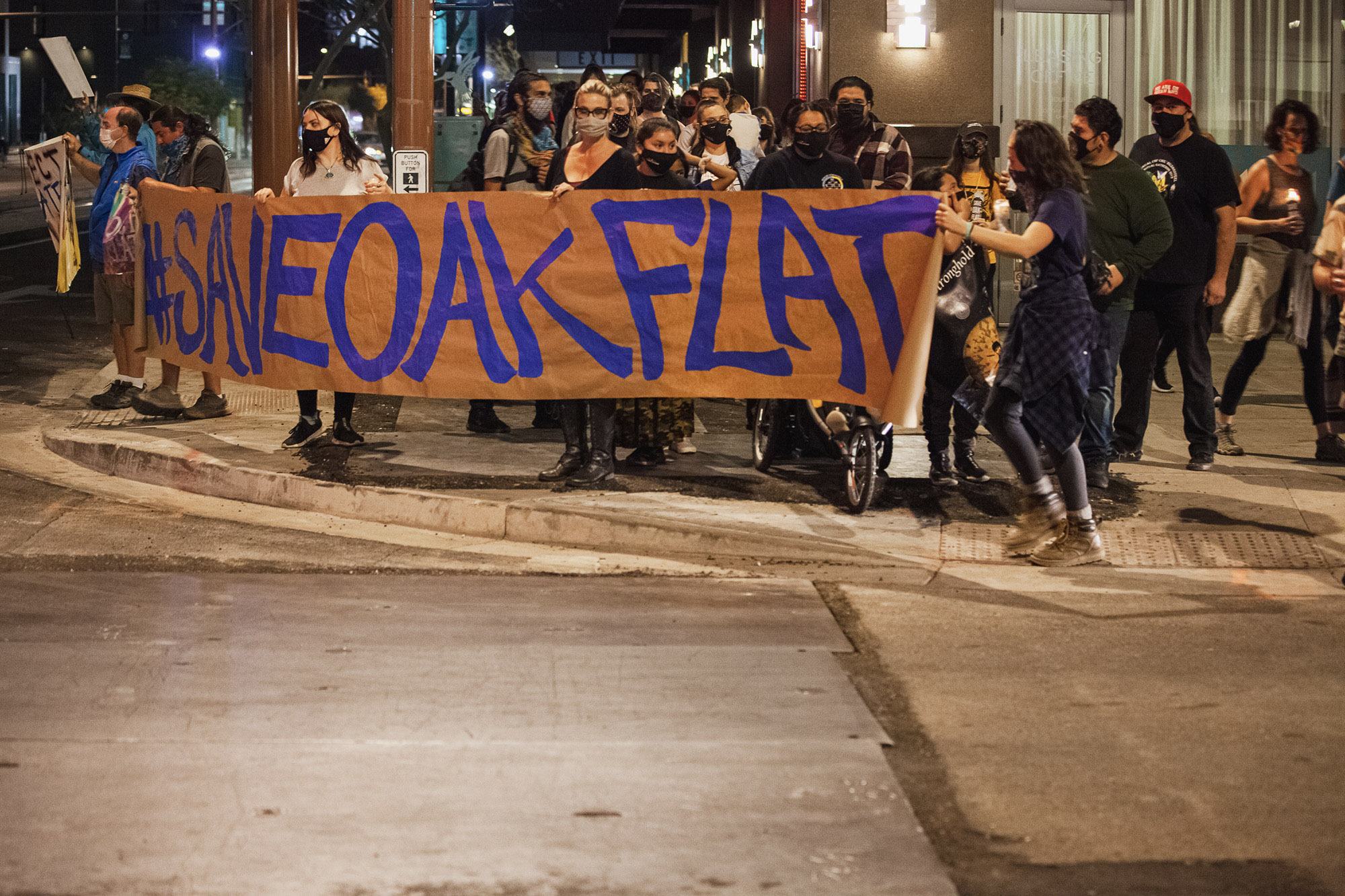Indianz.Com > News > Cronkite News: Apache Stronghold fights to protect sacred site from foreign mine
Apache make emotional appeal to court to halt proposed copper mine
Tuesday, February 9, 2021
Cronkite News
WASHINGTON – Members of the group Apache Stronghold told a federal district judge, in sometimes tearful testimony last Wednesday, that a proposed copper mine at Oak Flat would destroy a “holy place” for Native Americans and needs to be stopped.
“This is what this fight for Oak Flat is revealing,” said Wendsler Nosie Sr., a leader of Apache Stronghold and one of the witnesses Wednesday. “Why can’t all Americans know they’ve met an angel at a holy place?”
The hearing before U.S. District Judge Steven Logan was the latest in a years-long fight to block the Resolution Copper Mine, a massive project that is the result of a land swap in southeastern Arizona between the mining company and the federal government.
The U.S. Forest Service cleared the way for that transfer on January 15, when it released a final environmental impact statement on the mine.
Opponents argued Wednesday that the federal government violated their due process rights by rushing through the final approval last month, just days before President Donald Trump left office. They also claim the mine would violate their constitutional right to worship, and are asking Logan for a preliminary injunction to halt progress on the project while they pursue
their suit.
The mine’s
supporters say it could eventually bring thousands of jobs and billions in economic activity to the region over its lifetime. But doing so would destroy Oak Flat, which Nosie and his granddaughter, Naelyn Pike, called sacred land.
Pike said that would sever her people’s connection to the land and “everything the creator has given to us would be taken away.” She and Nosie described coming-of-age ceremonies, family gatherings and other ceremonies at Oak Flat.
“The area of Oak Flat is Apache territory, and we need to protect it, we need to fight for it, because that is the spirit of who we are in our Apache religion,” Pike said in a news conference after the hearing.





Note: This story originally appeared on Cronkite News. It is published via a Creative Commons license. Cronkite News is produced by the Walter Cronkite School of Journalism and Mass Communication at Arizona State University.
Search
Filed Under
Tags
More Headlines
‘Demoralizing’: Lawsuit blasts Trump administration for firings at tribal colleges
NAFOA: 5 Things You Need to Know this Week (March 17, 2025)
Chuck Hoskin: Cherokee Nation makes housing a priority for our health
Native America Calling: Science excellence among Native students
Native America Calling: Five years of COVID-19
Native America Calling: Decades of funding neglect is causing serious problems for rural Alaska school buildings
Native America Calling: High-profile cases increase pressure to better protect Indigenous women
Native America Calling: How federal cuts affect Native veterans
Chuck Hoskin: Cherokee Nation helps heal our communities
Native America Calling: Native skin cancer study prompts new concerns about risk
South Dakota Searchlight: Trump terminations hit Indian Arts and Crafts Board
Native America Calling: Regional improvement in suicide statistics is hopeful sign
List of Indian Country leases marked for termination by DOGE
‘Let’s get ’em all done’: Senate committee moves quickly on Indian Country legislation
AUDIO: Senate Committee on Indian Affairs Business Meeting to consider several bills
More Headlines
NAFOA: 5 Things You Need to Know this Week (March 17, 2025)
Chuck Hoskin: Cherokee Nation makes housing a priority for our health
Native America Calling: Science excellence among Native students
Native America Calling: Five years of COVID-19
Native America Calling: Decades of funding neglect is causing serious problems for rural Alaska school buildings
Native America Calling: High-profile cases increase pressure to better protect Indigenous women
Native America Calling: How federal cuts affect Native veterans
Chuck Hoskin: Cherokee Nation helps heal our communities
Native America Calling: Native skin cancer study prompts new concerns about risk
South Dakota Searchlight: Trump terminations hit Indian Arts and Crafts Board
Native America Calling: Regional improvement in suicide statistics is hopeful sign
List of Indian Country leases marked for termination by DOGE
‘Let’s get ’em all done’: Senate committee moves quickly on Indian Country legislation
AUDIO: Senate Committee on Indian Affairs Business Meeting to consider several bills
More Headlines